Owning chicken breeds for eggs is a great way to earn money or provide food for your family. Most chickens consistently lay eggs, but some produce way more than others.
So, if you want chickens that will produce lots of edible eggs, you’ll need to select your breed carefully.

Certain chickens produce more eggs weekly or lay eggs for more years of their lives than others. Consider these factors before choosing the right chicken for you.
Table of Contents
How Often Do Chickens Lay Eggs?
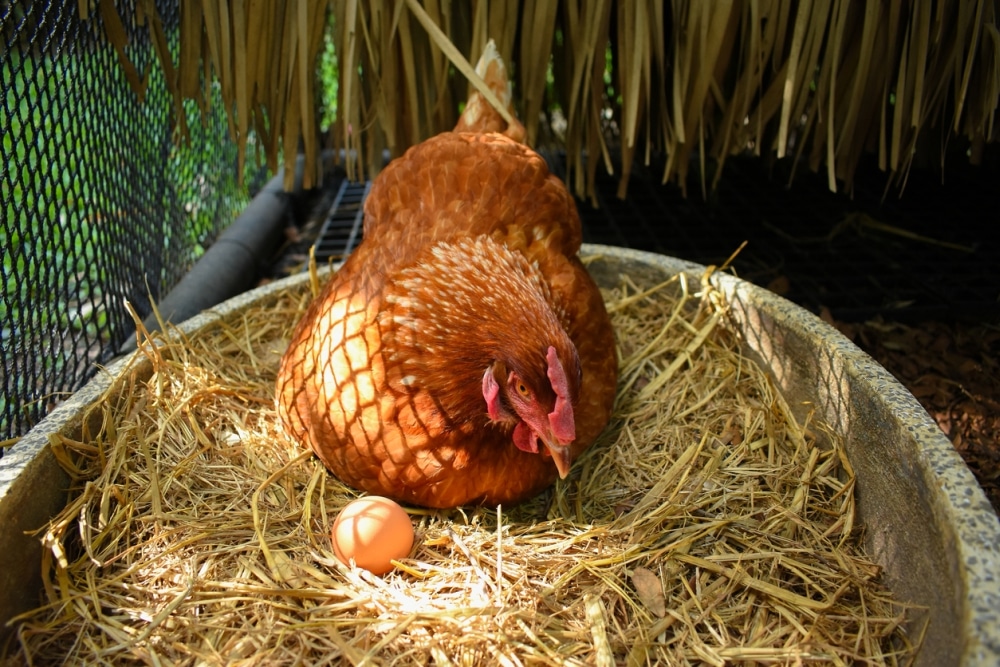
Healthy chickens usually lay about 4 to 6 eggs per week, and some might even lay an egg almost daily. The exact amount greatly varies based on the chicken’s age, breed, and well-being.
However, not all chickens lay eggs year-round. Some will take a break from laying eggs while molting or during the winter. Chickens usually lay their eggs based on how many daylight hours their are, so if there’s not enough light, there might not be an egg that day.
Getting a light for your chicken coop and putting it on a timer can help encourage birds to lay eggs in winter. Certain breeds are more likely to lay eggs year-round than others.
10 Best Chicken Breeds for Eggs
If you’re looking for some hens to provide lots of eggs, then you’ll need to choose one of the best chicken breeds for laying eggs. Here are ten popular breeds that fit the bill, along with some additional information about them.
#1 – Leghorn
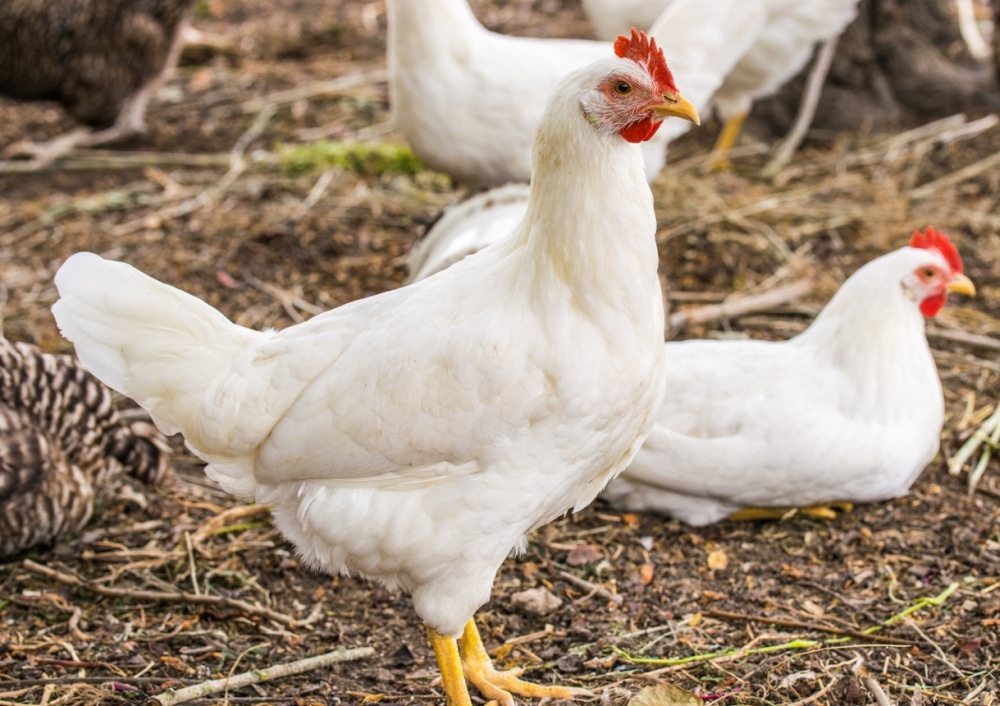
Leghorns might not live as long as other breeds, but they produce a lot of eggs in their time. These beautiful white hens lay 5 to 6 medium to large eggs per week. These chickens don’t usually slow down in colder months. They’re calm, easy-going birds, but they prefer not to be handled. They can make great chickens for beginners, as long as their owners keep their distance.
- Egg Production: 5 – 6 eggs per week, about 250 – 280 per year
- Egg Color: White
- Lifespan: 4 – 6 years
- Personality: Docile and skittish
#2 – Rhode Island Red
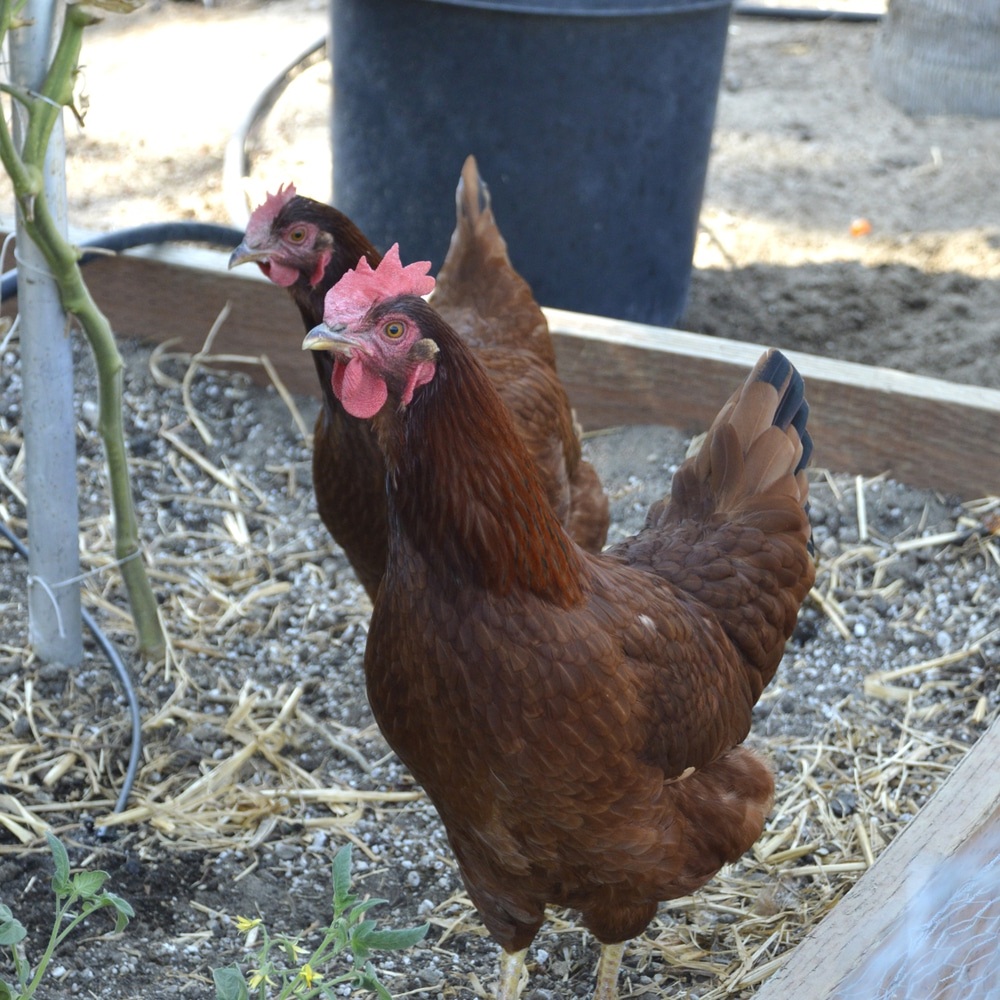
Rhode Island Reds are named for their beautiful reddish-brown feathers. They lay 5 to 6 medium-sized eggs every week. Many Rhode Island Reds even lay eggs in winter months. They’re great chickens for beginners because they’re independent and like to keep to themselves on a regular basis. Yet, they don’t mind being around humans, even children.
- Egg Production: 5 – 6 eggs per week, 250 – 300 per year
- Egg Color: Brown
- Lifespan: 5 – 8 years
- Personality: Friendly and independent
#3 – Plymouth Rock
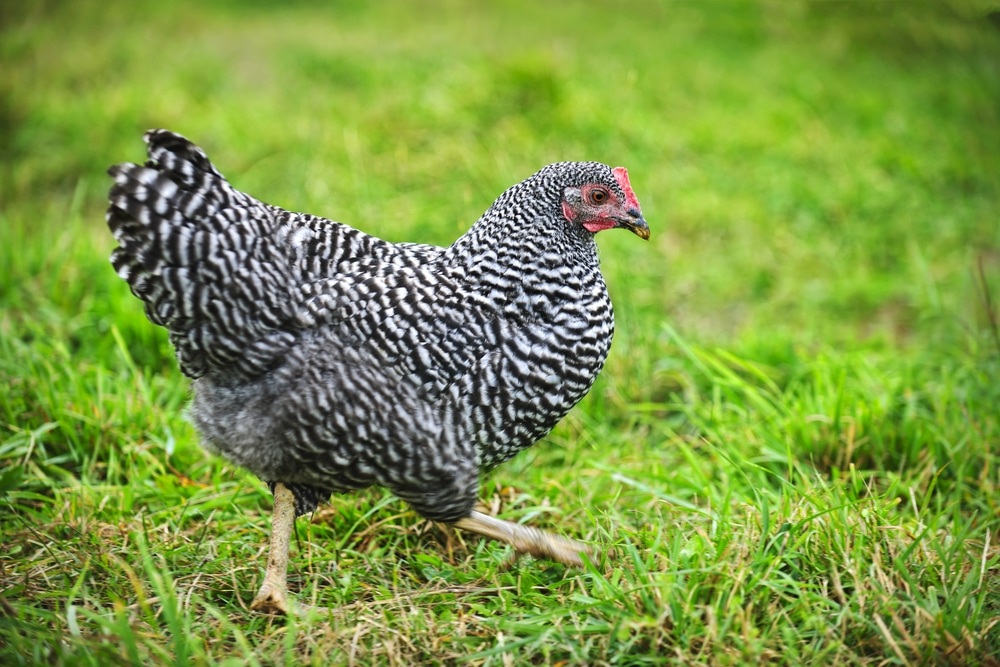
Plymouth Rock chickens are hard to overlook due to their unique black and white feather pattern. They are good chickens for beginners, and they lay an egg about once every other day. Thus, they lay 4 to 5 eggs per week. These birds lay smaller eggs, and their curious temperaments are best suited for free-range lifestyles. They might not lay at all in the winter, but they live longer than the average chicken breed.
- Egg Production: 4 – 5 eggs per week, 200 per year
- Egg Color: Tan or light brown
- Lifespan: 10 – 12 years
- Personality: Friendly and curious
#4 – Australorp
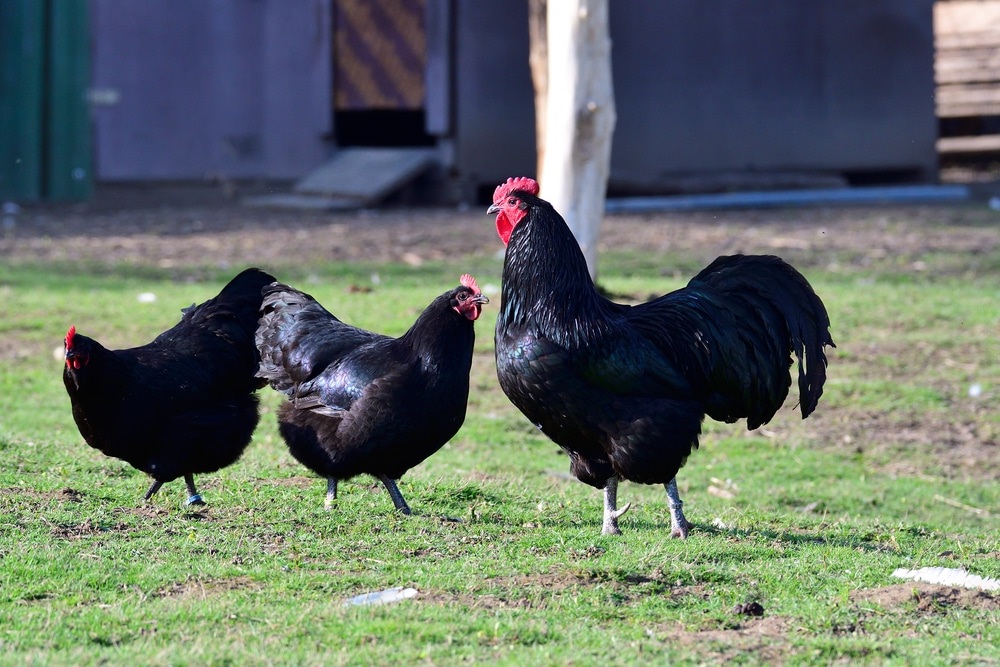
Australorps are famous egg layers with one setting the world record for laying 364 eggs in one year! Normally, they lay between 4 and 6 eggs each week. These chickens have beautiful black feathers with a green tint to them. They are friendly and talkative, so they can be great beginner birds as long as you don’t live too close to neighbors. They are one of the most reliable egg layers, so they can lay eggs throughout the winter in the proper environment.
- Egg Production: 4 – 6 eggs per week, 200 – 250 per year
- Egg Color: Light brown
- Lifespan: 6 – 10 years
- Personality: Friendly and docile
#5 – Sussex
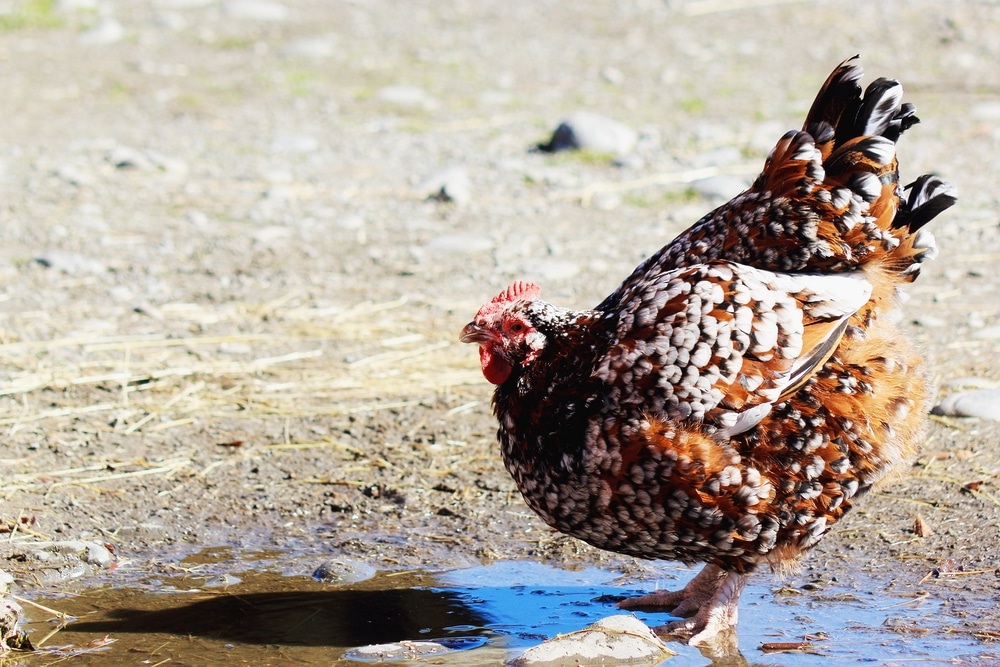
Sussex chickens are a gentle large breed that’s commonly used for both eggs and meat. They lay about 5 to 6 large eggs weekly, and they will lay eggs throughout the colder months. They are usually calm, docile chickens, but they might be prone to broodiness. These birds can come in eight different feather colors, but white is the most commonly seen.
- Egg Production: 5 – 6 eggs per week, 250 per year
- Egg Color: Brown or creamy white
- Lifespan: 6 – 8 years
- Personality: Calm and gentle
#6 – Barnevelder
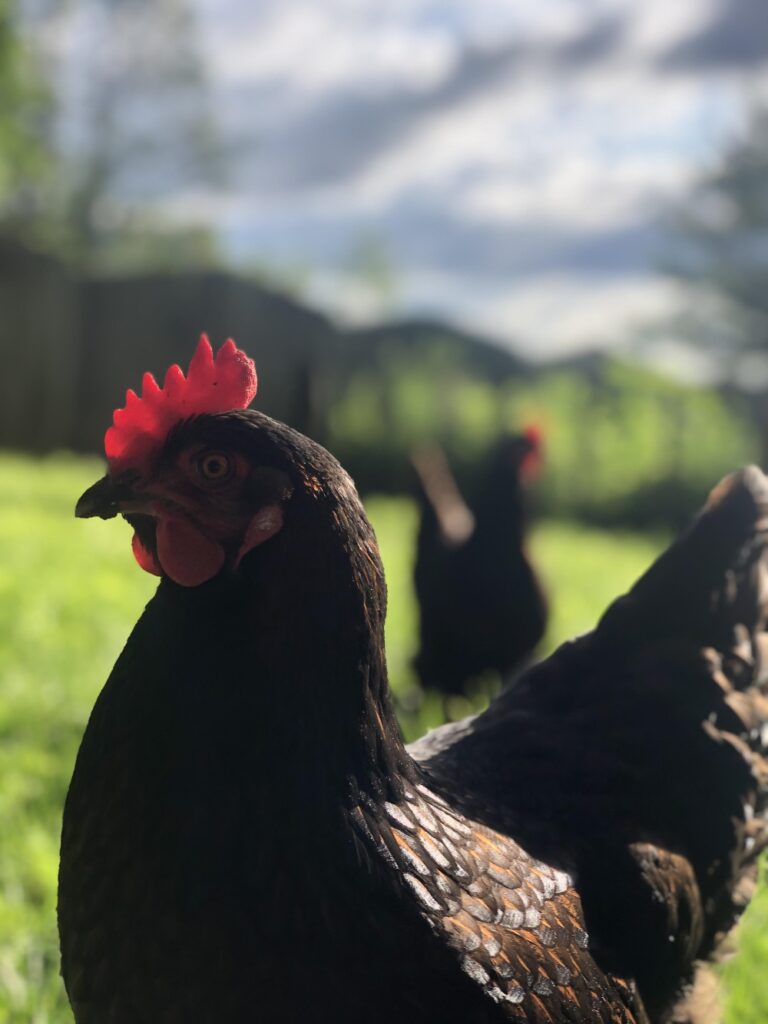
Barnevelder chickens only lay about 3 to 4 eggs per week, but they make up for it by laying eggs year-round, despite the lack of daylight in the winter. Their eggs are small to medium and they might have a speckled pattern on them. They’re one of the few breeds that’s fine being in a confined garden area rather than in a free-range space. They’re not good at flying, so the walls don’t need to be too tall.
- Egg Production: 3 – 4 per week, 150 – 200 per year
- Egg Color: Dark brown
- Lifespan: 7 – 11 years
- Personality: Friendly and mellow
#7 – Orpington
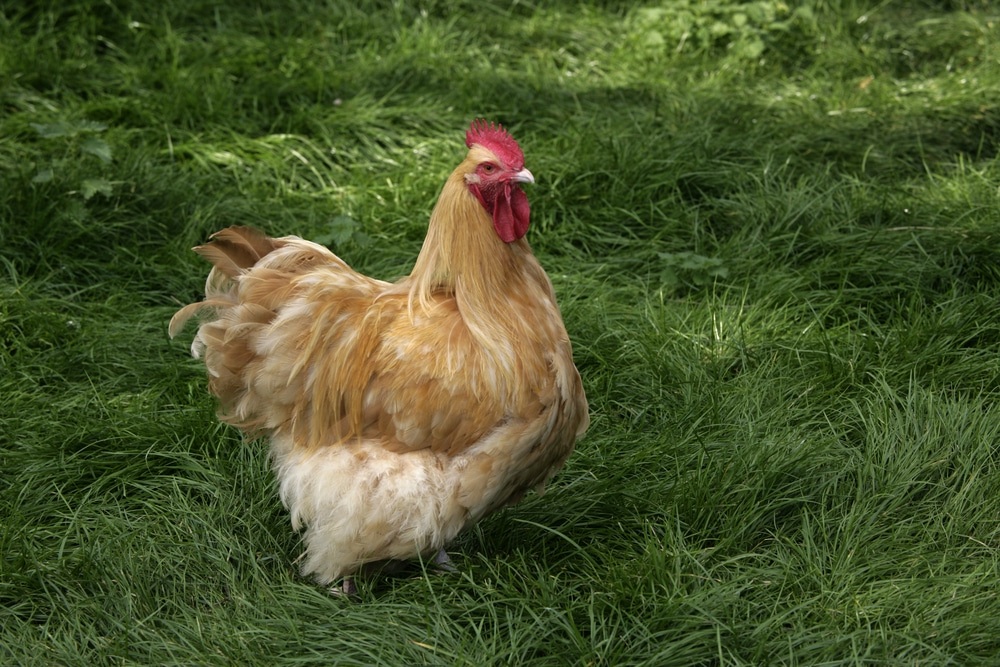
Orpington chickens are friendly chickens that are easy to raise. They lay about 3 to 5 eggs per week, but their ability to lay eggs throughout every season makes them more desirable. The buff coloring is most common for this breed, but there are several other feather colors, including lavender. It’s possible for them to go broody, which is why they don’t lay quite as many eggs as some of the other chicken breeds for eggs.
- Egg Production: 3 -5 eggs per week, 160 – 200 per year
- Egg Color: Brown
- Lifespan: 5 – 10 years
- Personality: Sociable and tame
#8 – Ancona
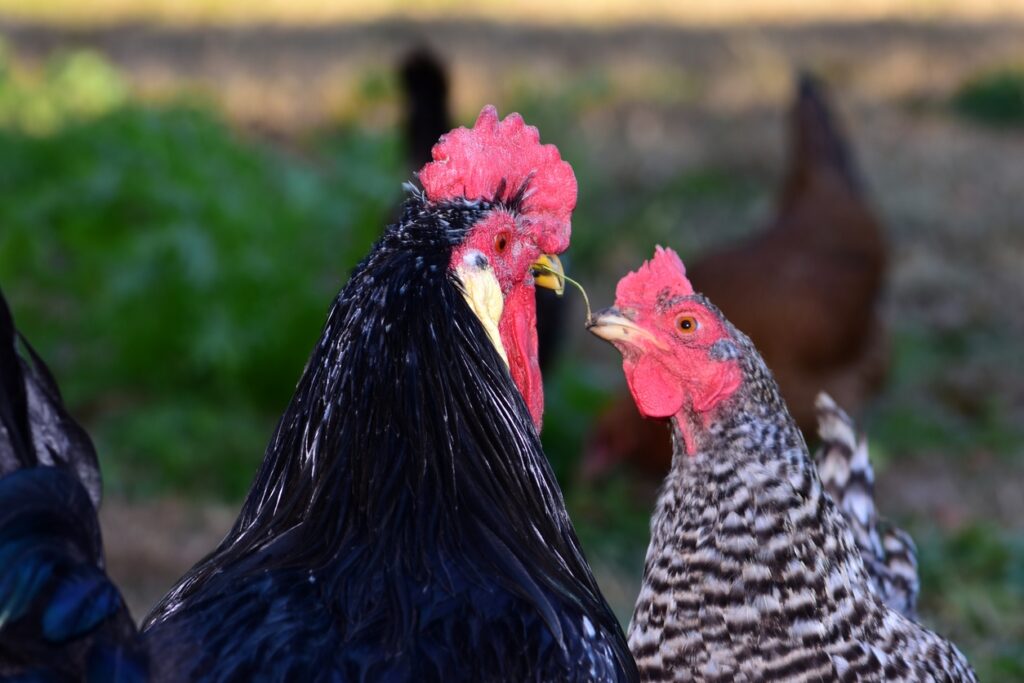
Anconas are more skittish than most chicken breeds, but they’re great egg producers. They lay 4 to 6 small to medium eggs per week. These chickens may even lay eggs well into winter. They’re better suited for experienced keepers because they can fly further than most breeds, they don’t like to be confined, and they don’t like to be handled. They look like Plymouth Rocks, only much smaller.
- Egg Production: 4 – 6 eggs per week, 180 – 220 per year
- Egg Color: White
- Lifespan: 8 – 10 years
- Personality: Skittish and active
#9 – Hamburg

Many people love Hamburg chickens because of their unique white feathers with black spots. They lay 3 to 4 small to medium eggs weekly. They can withstand cold temperatures well, so they might even lay eggs through winter. These chickens like to have lots of space to roam, so they don’t do well in a confined space. If they don’t get enough free-range time, they could exhibit aggressive behaviors.
- Egg Production: 3 – 4 eggs per week, 150 – 200 per year
- Egg Color: White
- Lifespan: 8 – 10 years
- Personality: Docile and adventurous
#10 – Delaware

Delaware chickens aren’t as popular as they used to be, but they’re great egg-layers and they withstand cold temperatures well. So, they might still lay some eggs in the winter. They usually produce about 4 to 5 large eggs a week. They’re calm chickens that can be great for beginners due to their friendly and curious personalities. Yet, they have a much shorter lifespan than most chickens.
- Egg Production: 4 – 5 eggs per week, 200 per year
- Egg Color: Brown
- Lifespan: 4 – 6 years
- Personality: Calm and curious
What to Do if Your Chicken Stops Laying Eggs
At some point, chickens stop laying eggs. Before you jump to any conclusions, it’s important to first make sure that they’re not doing it because of a health concern. Sometimes, sick chickens will stop laying eggs, so take them to the vet to rule out any medical problems.
Certain chickens also stop laying eggs during stressful times, such as when they’re molting. They could also stop laying eggs when there’s less daylight. If that’s the case, be patient, and your chickens will start laying again in the next season. If you want them to lay eggs sooner, try using artificial lighting in their coop to make them think the days are longer.
A chicken’s egg production slowly decreases as they age too. So, if your chicken is older, they might stop laying eggs, and they won’t resume. Luckily, there are plenty of other things chickens can do if they can’t lay eggs. Chickens are great at foraging, so they can help remove pests, such as bugs and weeds, from your property. Some people also keep them as pets.
Most chickens can be used for meat, but old chickens aren’t ideal for this. Young chickens produce the best meat for human consumption. Older chickens have tougher meat, so it won’t be as good of quality as the meat you’d find at the grocery store.
If you have no uses for a chicken that can’t lay eggs, you should consider re-homing them to a different farm. Another keeper will likely be able to find a good use for them.
Choosing the Right Chickens
Not everyone keeps chickens for the same reason. Some keepers want eggs to sell, some want to produce more chicks, and some want to sell meat. The reason you want chickens can help you determine which breeds are best for you.
The chicken breeds mentioned in this article are the best for producing eggs. They consistently produce eggs each week, and many of them keep laying year-round. So, if you want eggs to sell or keep, these ten chicken breeds are great birds to consider.